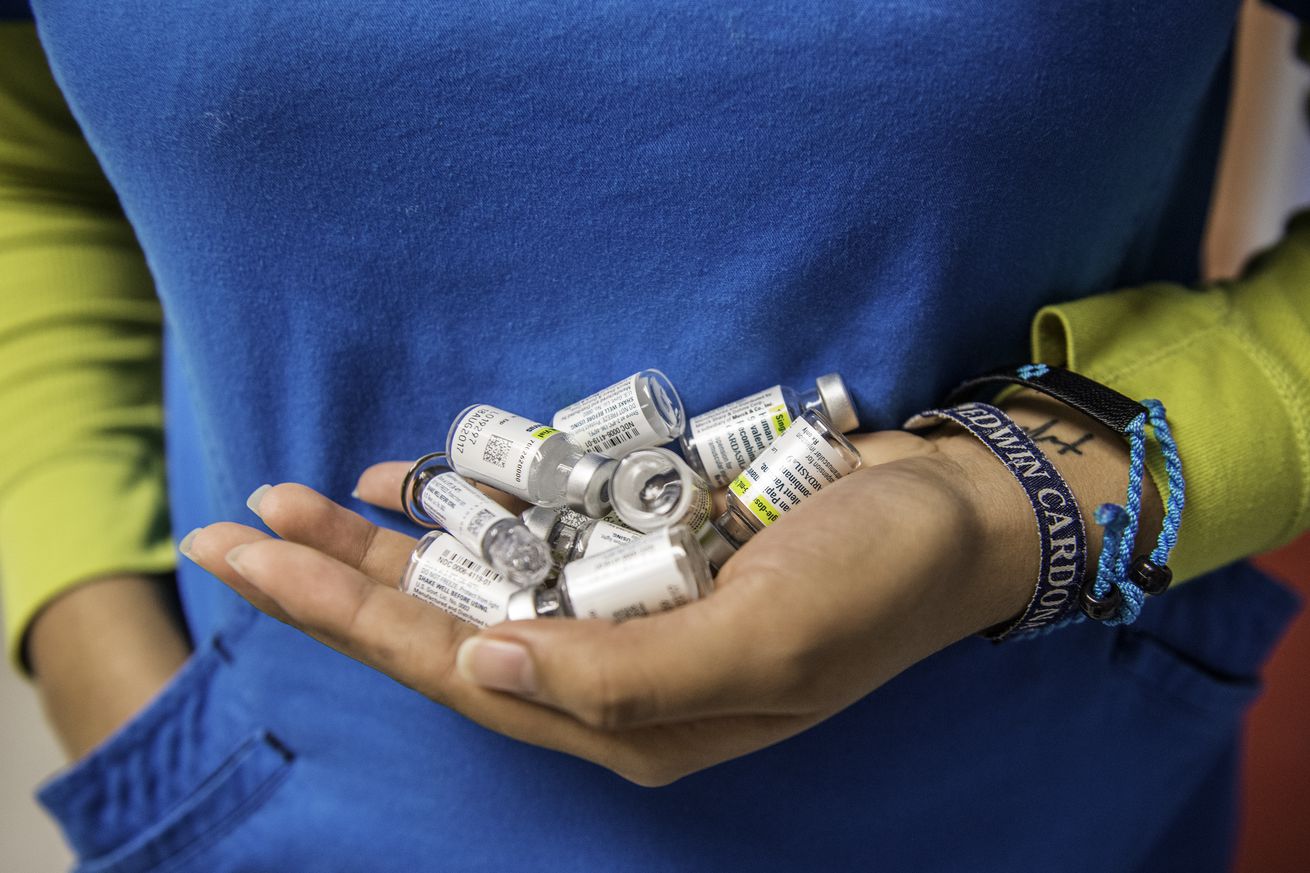
The Tennessee Department of Health is suspending outreach for all types of childhood and adolescent vaccinations, the Tennessean reported this week. Along with stopping COVID-19 vaccine events at schools, the department will no longer do outreach for the HPV vaccine, isn’t planning for flu shot clinics at schools, and is taking the department’s logo off of back-to-school vaccination information sheets. The shift in policy came after Republican lawmakers in the state got upset that the department was promoting COVID-19 shots for teenagers.
It’s a strong signal that the politicization and backlash around the COVID-19 shots, driven by conservative politicians and right-wing commentators, is spilling over to other types of vaccinations. It’s not the first time politics has impacted unrelated public health work during the pandemic — over a dozen states have proposed limiting public health powers as part of backlash to pandemic-related restrictions. But it’s the first time the target has been standard vaccines.
“It’s insane,” says Seth Kalichman, a professor of psychology at the University of Connecticut who’s studied anti-vaxxers. “It’s exactly the kind of overgeneralization that can occur with misinformation.”
The initial trouble in Tennessee started when conservative lawmakers criticized Health Commissioner Lisa Piercey for recommending COVID-19 vaccines to teenagers. The health department also fired Michelle Fiscus, the state’s top vaccine official, after she circulated a memo to doctors explaining a state law that allows minors to get medical care without parental consent. Fiscus said she was a scapegoat, fired to mollify the angry lawmakers.
Around the same time that Fiscus was fired, the department also stopped all vaccine outreach targeting teens or children. Health department spokesperson Sarah Tanksley told the Tennessean that the state has high childhood vaccination rates. “We are simply mindful of how certain tactics could hurt that progress.” She said the department is planning to research vaccine hesitancy and that the changes are in response to “an intense national conversation that is affecting how many families evaluate vaccinations in general.”
The jump from COVID-19-specific rollbacks to generalized rollbacks concerns Adriane Casalotti, chief of public and government affairs at the National Association of County and City Health Officials. “This is a very clear case of COVID-19 vaccination policy impacting other vaccinations,” she says. “We’re really concerned about the news that’s coming out of Tennessee.”
Carryover from concerns around one vaccine to others has happened before, particularly with the HPV vaccine, Kalichman says. There’s widespread misinformation around the cancer-preventing shot, and parents turn it down for their kids at high rates. “The vaccine for HPV was politicized, and the politicization and misinformation absolutely undermined vaccine confidence for a new segment of people who were not necessarily vaccine hesitant before,” he says.
The situation in Tennessee isn’t unique. At least 15 state legislatures are considering or have passed laws to restrict public health powers, according to an analysis from the National Association of County and City Health Officials. In Kansas, a new law would prevent the governor from closing businesses during a public health emergency. In Ohio, the legislature would be able to override any actions by the state health department taken to control infectious diseases.
“The fact that traditional, day-to-day public health activities have been impacted in such a blunt way squarely due to politics is really concerning,” Casalotti says.
In Tennessee, at least, the law hasn’t changed: the state still has laws requiring that kids get vaccinated before school. Instead, the policy changes could make it harder for families to get the information they need to keep track of vaccine schedules and make sure their kids are ready for school in the fall, says Jennifer Reich, a sociologist who studies vaccine hesitancy at the University of Colorado. “Right now I just see a chilling climate for public health officers who are trying to do their best to inform people of how to stay safe during the pandemic, and also how to protect their children from life threatening and disabling illnesses,” she says.
The COVID-19 pandemic isn’t the first time lawmakers have tried to limit public health authority or challenge things like vaccine mandates. Those proposals usually don’t go far, says Casalotti. “The real difference that we’re seeing recently is this traction that so many of them are getting.”
It shows that the messaging and misinformation from anti-vaxxers and others on that spectrum are having more of an impact. “The most frightening thing to people like me, and people in public health is when the denialists, the anti-vaxxers, and the anti-science people get the ear of the highest levels of government,” Kalichman says.
Kalichman says he wouldn’t be surprised to see what happened in Tennessee happen in other states, particularly in places with heavy resistance to COVID-19 vaccination. It’s easy to predict what could happen next: if state health departments stop promoting or helping people get childhood vaccinations, those vaccination rates could drop.
“You’re going to have outbreaks. It’s inevitable that there will be outbreaks of measles, rubella, whatever else if vaccines take a dip,” he says. “It’s just how it works.”